Photographs: Reuters. Rajni Bakshi
And yet, as the Andhra crisis continues to deepen, proponents of financial inclusion might find both unexpected challenges and inspiration in a short film called 'The Future of Money'.
The film, screened at the "Drumbeat Learning, Freedom and the Web Festival" in Barcelona, features interviews with young social entrepreneurs who are re-examining the very nature of money and fostering new forms of 'social currency'.This may seem like a far-cry from the bitter ground realities in Andhra Pradesh where an ordinance issued by the state government has virtually suspended operations of both micro finance institutions (MFIs) and Self-Help Groups (SHGs).
...
What is the future of money?
Image: Vineet Rai, founder of Aavishkaar.Vineet Rai, the founder of Aavishkaar, a social venture fund, wrote that the AP government is scheduled to give $22.2bn to members of Self-Help Groups by 2014.
By denying borrowers access to private MFIs, Rai argues, "The AP Ordinance has more to do with helping the state government program enjoy a monopoly over the poor than with preventing strong-armed debt collection."
Rai went on to warn that unless both the government and private MFIs "look inwards and make adequate course correction, their destructive competition has the potential to set us back by 10 years."
What is the future of money?
Image: A man withdraws cash frm an ATM.Since most of us take the functioning of money for granted, just as we treat the law of gravity as a given, this challenge from the radical fringe can easily be dismissed as airy-fairy stuff. But is it indeed so?
After all, what we actually seek is not money itself but the capability to enter into fruitful exchange for the objects or services we need or desire. What if exchange of goods and services were not just possible, but became more dynamic and equitable, without money as we know it today?
What is the future of money?
Image: Currencies.Innovators and reformers of this sphere begin by reminding us that money is a human invention and thus amenable to human re-design.
Such work builds upon the fact that money is now nothing more than an information system. It is no longer based on gold, as it once was. Why then are we limiting ourselves to government generated currencies and private bank generated credit-based money?
What is the future of money?
Image: The future of money book cover.Such work is not new. Many of these contemporary innovators trace their intellectual heritage to Irving Fisher, a powerful American economist in the early 20th century, who gave supreme importance to monetary reform. Contemporary efforts have been steadily gathering momentum over the last two decades and been further energised by the meltdown of 2008.
For instance, Lieater gets more of hearing now than when his book, The Future of Money, came out nine years ago. Lieater, has an MBA from Sloan School, MIT, and was a money trader and banker before becoming a missionary for monetary reform.
What is the future of money?
Image: Dollar notes.Photographs: Reuters.
The mission of money reformers is not to provide ready-made answers that become another dogma, but instead to nurture creativity. As Lieater says: "To design money that works for us, instead of us working for it."
What is the future of money?
Image: Venessa Miemis.Venessa Miemis, is a New York based graduate student, digital ethnographer and co-producer of the 'Future of Money' short film. Here is her wish list for what she seeks from a redesigned money system.
One: 'Transparency' which would enable her to track just what is done with the money she puts in a bank. Is it being invested in green technology and local initiatives or is it "just being thrown around in a speculative market and making money off of itself?"
What is the future of money?
Image: Getting the right score.Three: 'Real-time Data Visualisation' which would enable her to track the flow and distribution of her money in real time.
Four: 'Social Network Analysis for Co-Production Opportunities' to share detailed information with her network.
"There are a lot of people out there who want to cooperate and collaborate in order to manifest something together and make their lives and the world a better place. I need a service that helps link unmet needs with unused resources."
What is the future of money?
Image: Chinese currency.Photographs: Reuters.
Many bankers respond to this wish list with horror thinking that they would thus be put out of business.
Not necessarily. Strengthening of local economies by liberating them from complete dependence on government issued currencies and private bank credit in its present form, would create a whole new universe of business opportunities.
What is the future of money?
Image: Dollar notes.Photographs: Reuters.
Because, argues Venessa: "It makes sense to remove the layers of abstraction that money creates, and to design currencies that actually rebuild social fabric. It makes sense to know the people that are within your proximity, and be aware of the resources they have at their disposal, and have systems in place that allow them to be exchanged."
Proponents of MFIs can easily dismiss all of this as the idealism of privileged Western radicals. But perhaps some of them will be inspired to rethink this standard, somewhat knee-jerk, response.
Liberating the exchange process, from being utterly captive to conventional money, might be far more exciting and fruitful than mass outreach of micro-loans.

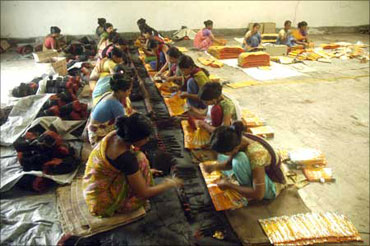

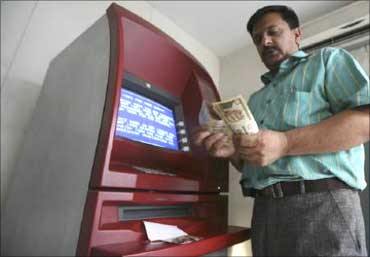
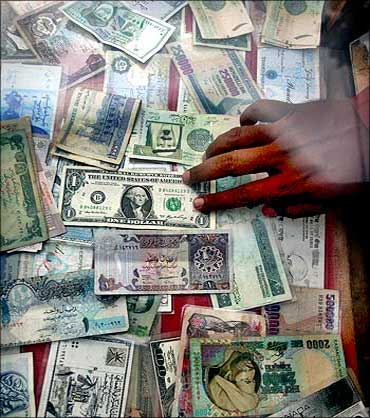
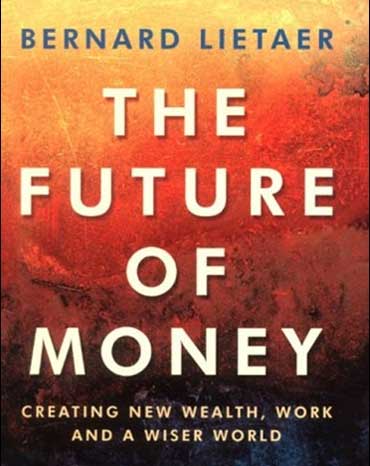
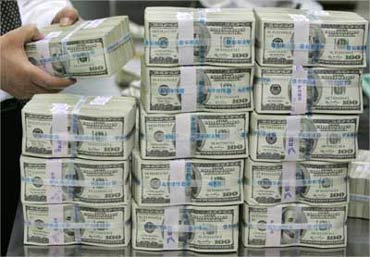

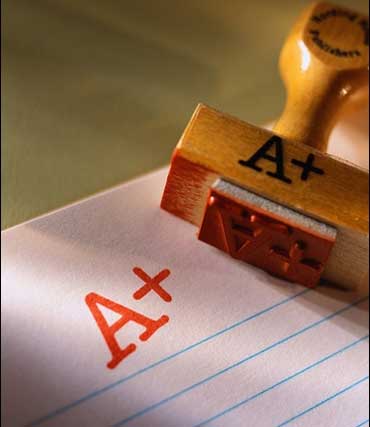
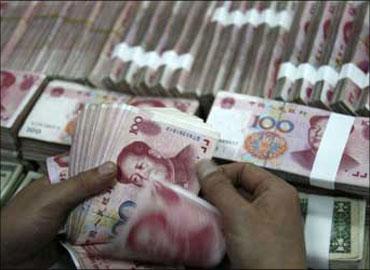
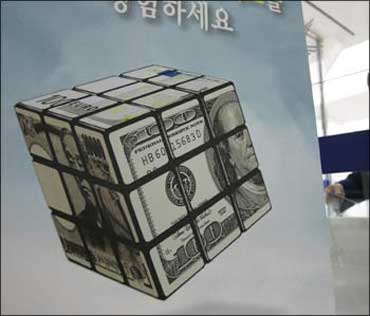
article